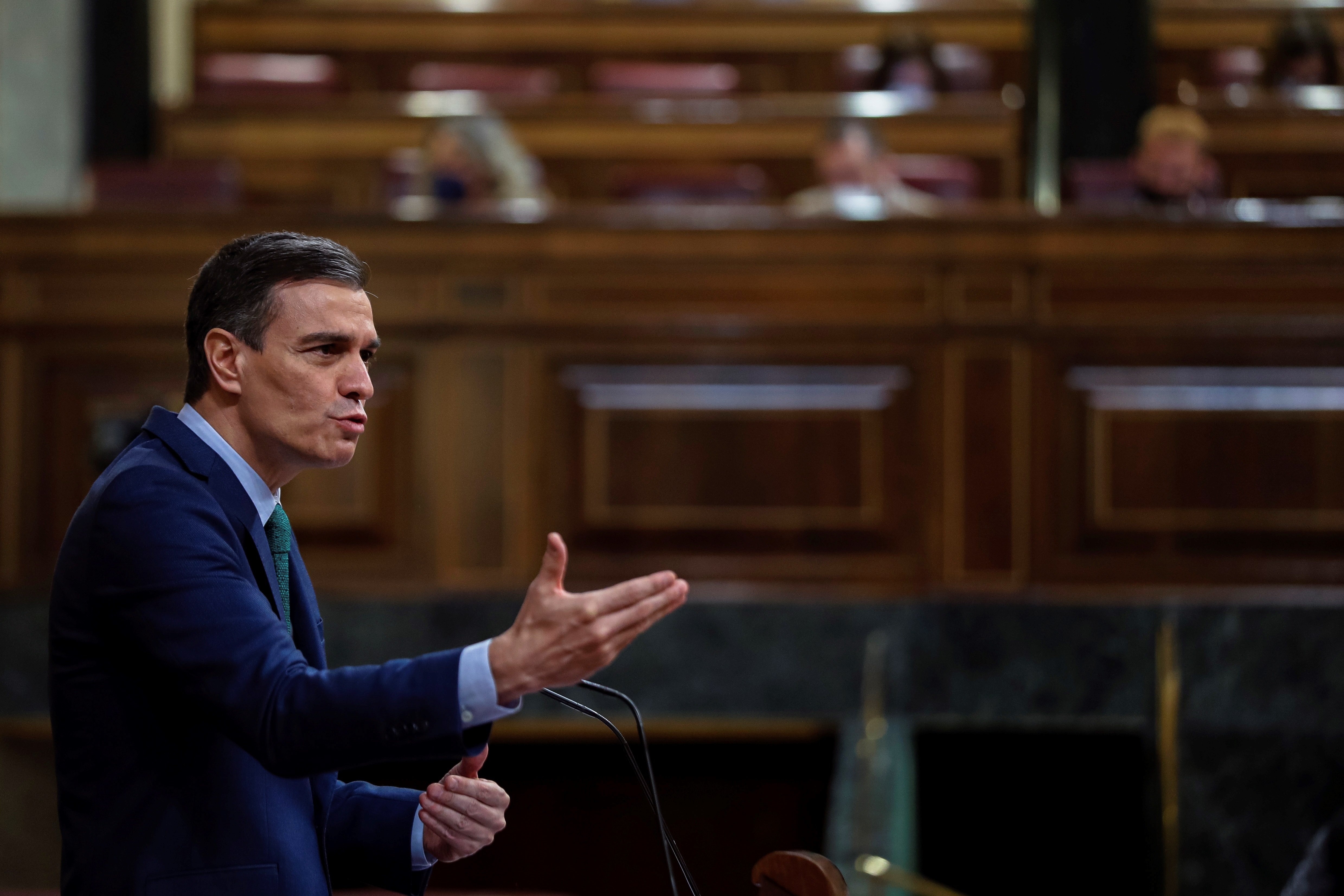The Catalan pro-independence majority at the polls on 14th February is not a pro-independence majority for Pedro Sánchez. In his appearance this Wednesday before the Congress of Deputies, in response to the Junts per Catalunya party, the Spanish PM asked the Catalan party to "stop beating the 51%" voting percentage - that is, the percentage of total votes which went to parties explicitly favouring independence from Spain.
For two reason, said Sánchez, JxCat needs to pipe down. First, "because it's false, it wasn't a plebiscite." Secondly, the Socialist leader declared, "this 51% corresponds to 23% of the electoral roll". According to his calculations, that represents a seven-point drop for the pro-independence parties compared to the average number of ballots cast for them in previous elections. On the other hand, when it came to responding to the other main pro-independence party, ERC, Pedro Sánchez took a notably more gentle approach.
After refuting that there is a pro-independence majority, the Spanish prime minister criticized that it is "more than questionable from a democratic point of view" that Junts per Catalunya tries to endorse anything with this level of social support. He warned them that "they can't twist mathematics to do what the democratic law won't let them." He urged those of Puigdemont's party to "democratically assume their defeat instead of trying to appropriate other people's triumphs." And he concluded: “It would seem as if they had won the elections. The only certainty is that they have lost the presidency of the Generalitat of Catalonia".
But when it came to responding to ERC's Gabriel Rufián, the Spanish president put on his kid gloves. He underlined two facts from the results of the 14th February elections. The first, that "the forces that are committed to dialogue and reunion have won". The second, "the vast majority want a move to the left." He defended, however, that "it would be good for Salvador Illa, who won the elections, to lead this". The Socialist president also "thanked" the PDeCAT party for the support which their Congressional members gave to the state of alarm, which he said served to "support co-governance".
With Podemos, "reduce decibel level"
After many days and weeks of friction between the two Spanish government partners, Pedro Sánchez wanted to calm the waters. He once again said he was "satisfied" with the coalition government. However, the Socialist leader called on both his party and Unidas Podemos to "reduce the decibel level". He argued that "our differences must serve to make better public policies" and, therefore, "what we need to do is continue to move forward and work as before, debating issues that will improve the lives of Spaniards and reduce the decibel level a little ”.
On the other hand, the Socialist leader wanted to put his finger on the sensitive spot for Ciudadanos, after their latest electoral disaster, this time in Catalonia. Sánchez attributed the party's results to alliances with the far right. "You lost 30 seats in the Parliament of Catalonia, from 36 to 6, and you go up to the rostrum now as if you are listening to the rain," he told Arrimadas. He added that Cs were the party that were "neither red nor blue" and yet they "became the most enthusiastic on the right."
Condemnation of "violence"
Once again, the Spanish PM took the opportunity to warn that "in a full democracy like the Spanish one" there is no room for "any kind of violence", after a week of rioting and incidents in the demonstrations against the imprisonment of Pablo Hasél. He reiterated his support for the work of the Mossos d'Esquadra. On the other hand, Sánchez insisted that the Penal Code will be reformed in this area, because "freedom of expression is subject to various limits, which are respect for the rights and freedoms of others, but these limits must be equal for all". He promised that "we will do it."

